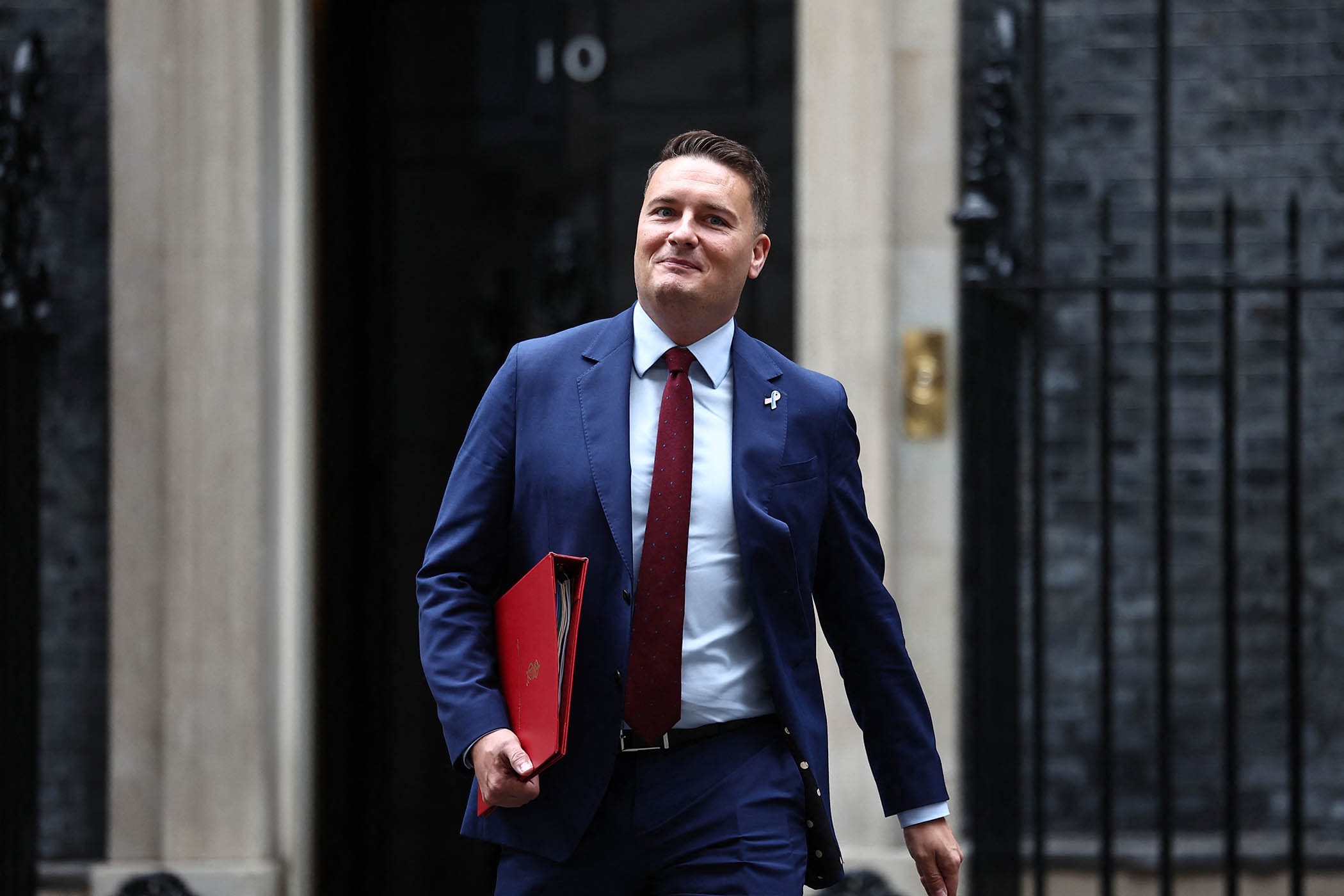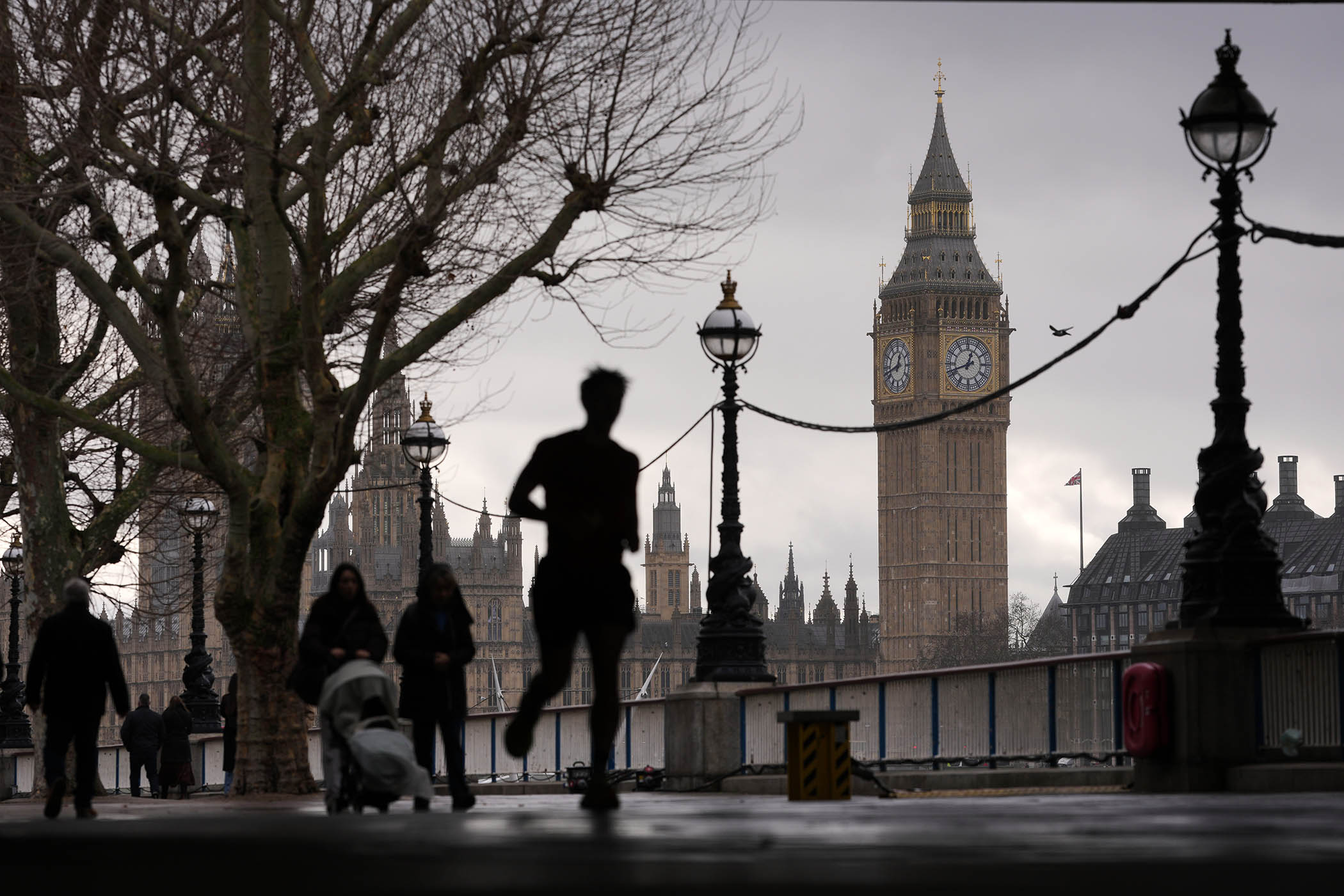When schemes to supplant him swirled around Harold Wilson in the late 1960s, that Labour prime minister put down the plotters in a speech to a rally in London: “I know what is going on. I am going on.” This riposte had a feline elegance that was starkly absent from the risibly crude and self-destructive attempts of Sir Keir Starmer’s under-strappers to shore up his position.
By giving briefings to journalists that their man would fight any challenge to his leadership, they stupidly confirmed that an attempt to topple him is what keeps them awake at night. By saying that he couldn’t be replaced because it would “destabilise” international relationships, they sounded horribly like the apologists for Boris Johnson who argued that he couldn’t be removed because of the war in Ukraine. By attempting to “kneecap” Wes Streeting by suggesting the health secretary was planning an imminent coup, they gave him the opportunity to give a masterclass in his superior communication skills when faced with a tricky situation. It was humorously deft to suggest the poisonous whisperers had spent too much time watching The Celebrity Traitors and call it ”the most unjustified attack against the Faithfuls”.
Thus did a cunning plan supposedly designed to fortify the prime minister by flushing out conspirators make him even weaker, as some in Number 10 were grimly acknowledging by the end of the week. A government source calls it “a fucking stupid, shoot-yourself-in-the-face briefing”. One cabinet member says: “They made a cack-handed attempt to smoke Wes out and all they’ve done is increase his share price.” A different cabinet member remarks: “It felt so neurotic.” The impression conveyed is that the animating emotions within Downing Street are fear and paranoia. It is reminiscent of the late Kenneth Williams playing Julius Caesar in Carry on Cleo when he pathetically laments: “Infamy! Infamy! They’ve all got it in for me!”
Not that they are entirely wrong about that. A substantial proportion of the parliamentary Labour party, and a growing body within the cabinet, have got it in for their leader. “There is no loyalty,” one minister sighed to me the other day. The mood is bitterest among the 2024 intake. In the space of less than 18 months, they have enjoyed the ecstasy of the election landslide victory followed by the agony of feeling doomed to be one-term MPs. The encouragement some took from Sir Keir’s well-received speech to the party conference has evaporated, not least because there has been virtually no follow-through to build confidence that he has a plan to rescue his party. There’s as yet no consensus among Labour MPs about who would be the optimal replacement, but the feeling that Sir Keir won’t be leading them into the next general election has palpably hardened.
Pick a Labour faction and the headline complaints about Sir Keir are the same: no vision, no direction, no elan
Pick a Labour faction and the headline complaints about Sir Keir are the same: no vision, no direction, no elan
A lot of the blame for what the health secretary is not the first to call a “toxic culture” at Number 10 is being directed at the chief of staff, Morgan McSweeney. Firing him might temporarily soothe some of the fury on the Labour benches, but it would not deal with the fundamental source of discontent. Pick a Labour faction and the headline complaints about Sir Keir are the same: no vision, no direction, no elan. One shrewd Labour figure reckons: “If you could hold an anonymous vote of Labour MPs tomorrow, they’d probably vote to get rid of him.” The tergiversations about whether or not to put up income tax in the budget hardly help. Above all else, no popularity. The prime minister’s approval ratings are as dire as those suffered by Rishi Sunak on the way into last year’s election. Where we’ve got to today, I am not sure you need the fingers of both hands to tot up the number of Labour MPs who can be called die-hard Starmerites.
Contenders to replace him would be fools if they weren’t making some contingency plans. Furtive conversations about whether and how to replace him are taking place. Four names come up most often. One is Angela Rayner, the former deputy PM. She had to quit for breaching the ministerial code, but, if anything, that has increased the affection towards her among a lot of the party. One minister predicts that were she to declare her candidacy, “more than 100 Labour MPs will have signed her nomination papers by the next morning”. Another possible runner from the soft left is the former leader, Ed Miliband, who is the most popular member of the cabinet among Labour activists. “He’s interested,” says a colleague, though others reckon both Mr Miliband and Ms Rayner see themselves more as king or queenmakers. On the other wing of the party, it is assumed, rightly or wrongly, that the health secretary and Shabana Mahmood, the home secretary, would strike some kind of deal with each other and others about which of them would run.
There’s nothing yet, as far as I can detect, sufficiently organised to be worthy of the description “plot”. The fate suffered by Andy Burnham, who arrived at the Labour conference declaring that he was being urged to mount a challenge, only then to be impelled to utter a loyalty oath, is a warning of what can happen when ambition gets the better of judgment. One senior figure remarks of the potential contenders: “They’re all muttering that line from Macbeth.” The phrase “he who wields the dagger never inherits the crown” does not actually appear in Shakespeare’s play. It is nevertheless intoned as a caution that the person directly responsible for the downfall of a leader rarely becomes the next one.
It still seems highly improbable that anyone will try to putsch Sir Keir out of Number 10 before Christmas. “Wait until May,” advises one astute veteran. The zone of maximum peril for the prime minister is around the elections next spring. If the opinion polls are broadly correct and nothing dramatically improves for the government between now and then, Labour is facing dreadful outcomes in the contests for the Welsh Senedd, the Scottish parliament and the local elections in England. Catastrophe at these elections is the likeliest catalyst for the simmering volcano to go the full Krakatoa.
That gives the prime minister six months to prove to his party that he’s still the best person for the job. Any more weeks of self-inflicted disaster as terrible as this will increase the chances of a challenge from highly probable to racing certainty.
Photograph by Henry Nicholls/AFP
Newsletters
Choose the newsletters you want to receive
View more
For information about how The Observer protects your data, read our Privacy Policy



